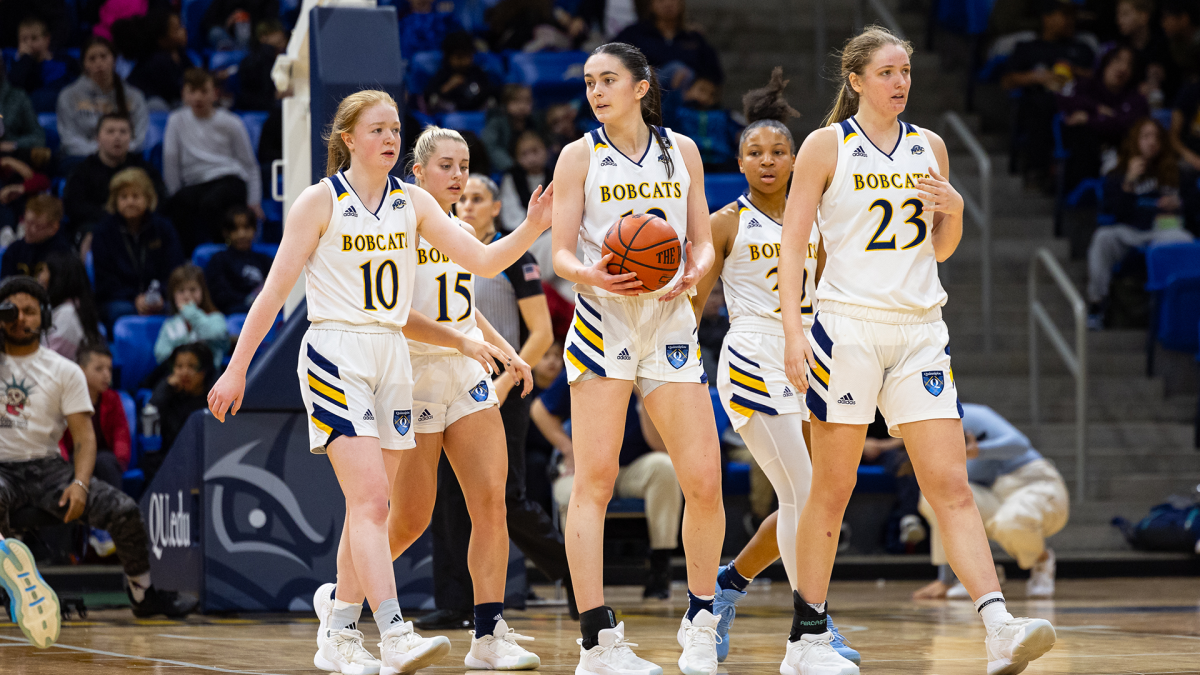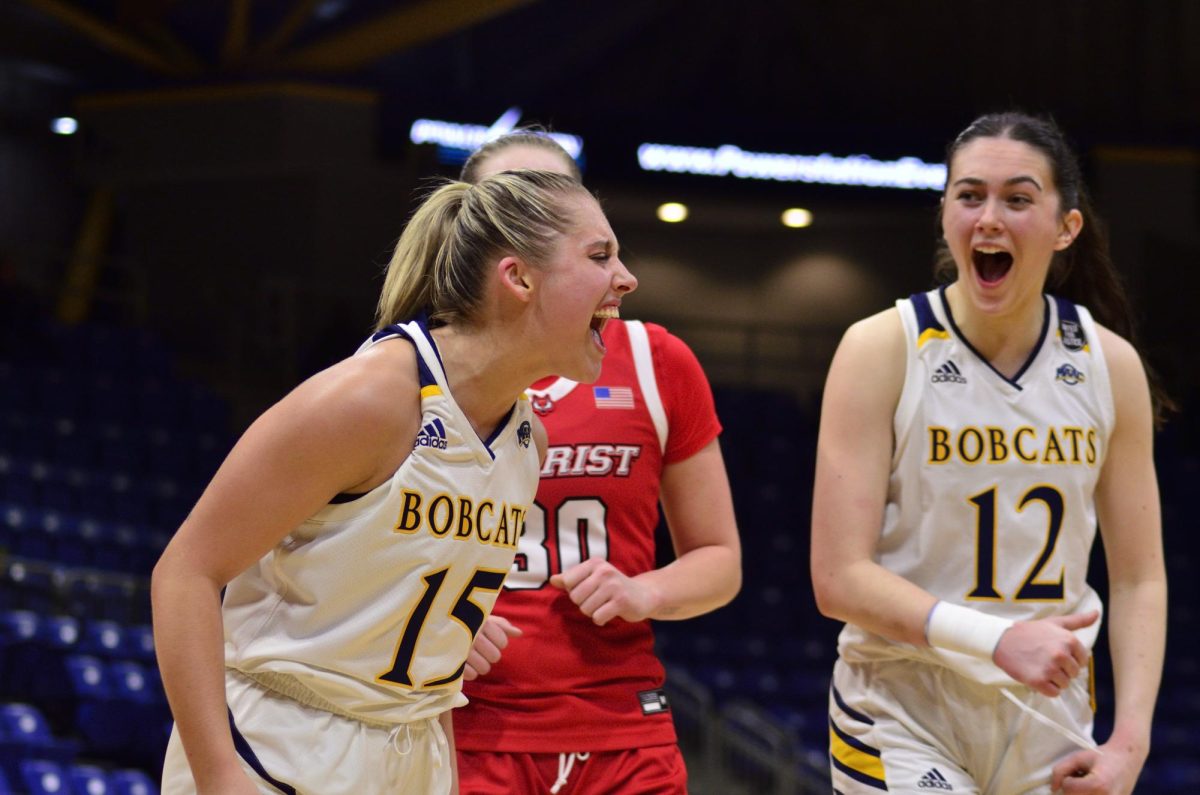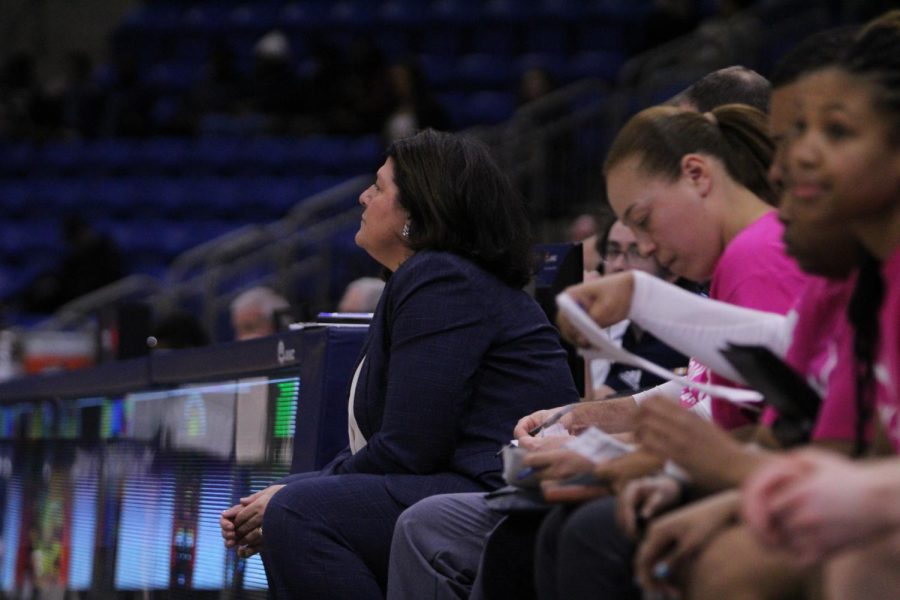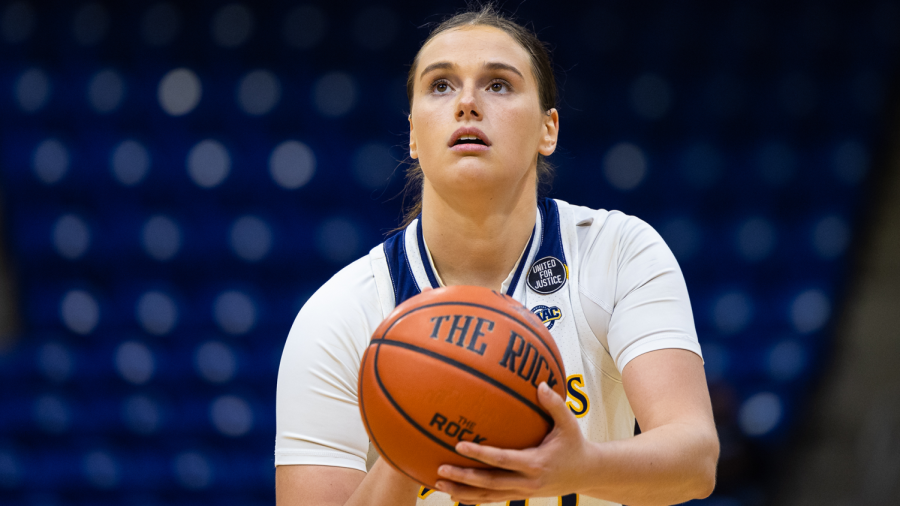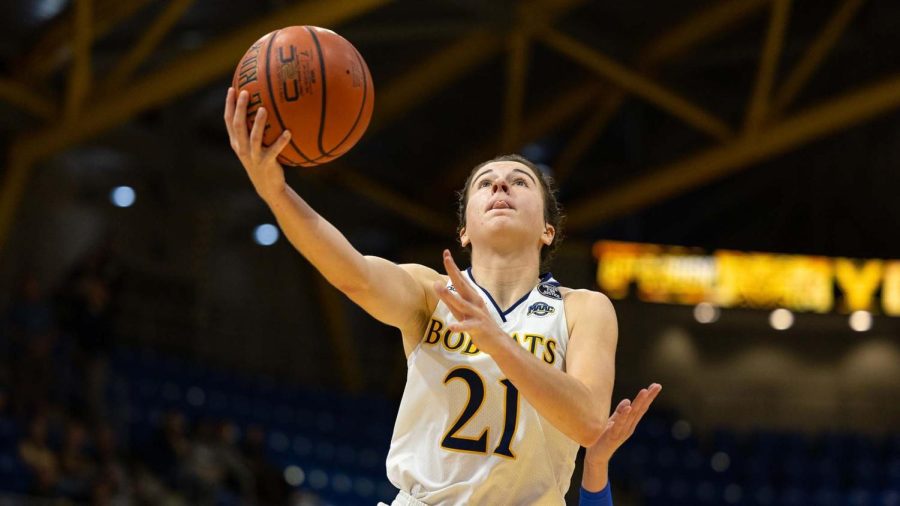“When I was young, I wanted to play with this girl and she was like, ‘Oh, I can’t play with you because you’re black’, and that really hurt me because she couldn’t count to ten, but knew that she didn’t want to play with me,” said Quinnipiac Women’s basketball forward Tiera White.
It is memories like these that are instilled in the minds of Black Americans around the world and for White, it is a reason as to why she decides to kneel for the national anthem during her team’s basketball games. White isn’t alone in her kneeling endeavors at Quinnipiac, as guard Reiven Douglas and center Khadijah Tungo join her in representing their cause.
Kneeling during the national anthem began in 2016 when the then San Francisco 49ers quarterback, Colin Kaepernick, decided to take a knee on the field as the Star-Spangled Banner began to play in protest of racial injustices. Since 2016, the movement grew overtime and continues to play a role in sporting events to this day…including collegiate women’s basketball.
Three Quinnipiac women’s basketball players made the decision to kneel during the national anthem this season to continue spreading awareness for the racial injustices faced by people like them every day.
“We started doing it because it’s just our part in the fight and making sure that there’s still awareness in the inequities that continue to plague America and continue to plague the black community specifically,” said Douglas.
These players, being members of the black community, noticed the inequities in the world and wanted to do their part to make a change.
“You just see a lot of people who are just scared to go out, just scared to be. There are a lot of things you have to go through because you just have to be extra cautious and things like that so it’s just hard to live that way, so we want to make sure we continue to bring awareness to that cause,” said Douglas.
While the cause began back in 2016, the severity of the inequities that Black Americans face was elevated in 2020 due to a series of police killings of Black Americans. On March 13, 2020, 26-year-old Breonna Taylor was killed by police in Louisville, Kentucky. Taylor’s story gained national attention and frustrations within the black community began to rise in regards to police brutality. Then, on May 25, 2020, George Floyd was killed by police in Minneapolis, Minnesota. There was video footage that was released following Floyd’s killing that sent shock waves around the world. The video of Floyd screaming, “I can’t breathe” while under the knee of a white police officer before going still seemed to set a spark within the black community, and the Black Lives Matter Movement began to grow exponentially and gained national attention through hundreds of protests. These moments are also those that have become ingrained into the minds of the community affected by them.
“I’m just supporting my teammates and it’s a big cause because of what happened in 2020. I know it’s a big cause, I know we believe in something, that something can change, and it will change,” said Tungo.
Over the years as the black community and allies have made kneeling for the national anthem a regular event, athletes such as White have noticed that people often don’t understand why they are choosing to kneel.
“A lot of people get it confused for disrespecting our military and who protects us. It’s not based on that, it’s based on how many of us have been treated in this country,” said White.
Looking back at the story of the girl that didn’t want to play with White due to her race, she said, “I feel like it’s instilled in the home and how people were raised, and I think that’s really insensitive and it’s not inclusive and I feel like everybody should be included in everything.”
Some others believe that athletes and activists are kneeling purely for views on social media and for these Quinnipiac athletes, that is not the case.
“We want to continue to send the message that it’s not just a thing for social media and it’s not just a black out event or whatever. It’s not just a one-time thing, we want to continue to bring that awareness because it continues to happen,” said Douglas.
While the black community is using the act of kneeling as a protest against racial injustices, there are the people who are confused by it as well as those who believe that the act is completely unjust and feel as though it is disgraceful as it is disrespecting the country. To those people, Douglas has one message.
“You are part of the problem,” said Douglas. “If you see what we are doing as a negative thing to the flag or to the whatever then you are deflecting on what the real issue is and you are part of the problem.”


